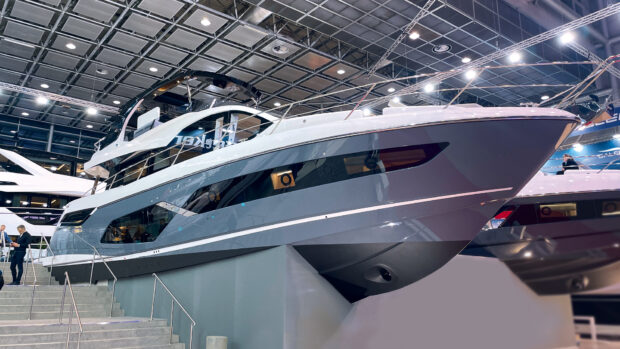Our racing correspondant reflects on the remarkable achievement of the Venture Cup crews and asks where we go from here
Well, well, well it went ahead after all and what a success it was. Despite no support from the RYA, four of the original 20 entries in the Venture Cup set off from London to Monte Carlo. They finished in ten days without any mishaps from third parties.
It was this risk assessment that prompted the RYA to ask organisers for a £20k insurance fee and to supply clearance for all European stop over ports along the route. Both were almost impossible to provide, but without RYA approval it was extremely hard to attract the level of financial sponsorship needed to cover costs.
Such risk assessment is nonsense when looking back at the history of long distance offshore powerboat racing in the UK and European waters. There is no record of any accident involving a major third-party claim.
As far as port clearance was concerned it transpires that apart from one Spanish port in the Mediterranean, our four stalwarts were received with open arms wherever they went. The exception was no doubt due to a misunderstanding.
A certain level of smuggling occurs along Spanish coast (both with drugs and illegal immigrants) so it’s little wonder four speeding boats drew the attention of law enforcement agencies.
The success of this London to Monte Carlo run, for it was not a race, has proved it is possible to repeat the great race of 1972 despite current health and safety regulations, conservation and all the other things that today prevent serious adventure.
It also appealed to a far wider audience this year, with a four-page feature in the September issue published in Motor Boat & Yachting. This is the widest coverage of a power boating contest in over a decade.
If risk is a factor which worries the RYA it is probably unaware that Britain’s greatest nautical sailing event, the Aberdeen Asset Management Cowes Week, is looked after by a team of safety officials from the world of offshore powerboat racing.
Richard Salaman, Julie Jackson and Sally Windsor (pictured at the Royal Yacht Squadron (RYS) during the 2014 Cowes Week) are the sport’s leading safety team, which not only supervises the famous Cowes-Torquay-Cowes race but also looked after most major events in the heyday of offshore powerboating.
 Richard Salaman, Julie Jackson and Sally Windsor of the Cowes Week safety team
Richard Salaman, Julie Jackson and Sally Windsor of the Cowes Week safety team
Such is their efficiency the trio was approached by the RYS in 2001 to handle all safety aspects of the world renown America’s Cup Jubilee.
They did such a good job on that occasion they have been responsible for safety during Cowes Week ever since. Next year they will be doing the same thing at RYS bi-centenary, which is expected to attract some of the world’s largest yachts to the Solent.
With such a record of safety I cannot understand why the RYA priced their insurance so high, especially when most recent claims that have arisen between competitors racing in ever decreasing circles within a few yards of the shoreline.
Aidan Foley who took over the reins at the Venture Cup when its instigator, Mike Lloyd, withdrew from the committee has carried the responsibility for the event entirely on his shoulders.
The fact that four contenders still decided to go ahead regardless once the London to Monte Carlo race was abandoned is a credit to him.
Aidan is already planning an event for next year and although the London to Monte Carlo format is still very much on the programme, he hopes to have a long distance race in British waters by 2015. This should include all four countries of Great Britain – England, Wales, Scotland and Ireland.
I can see this being welcomed by most offshore enthusiasts. After all, apart from the annual Cowes-Torquay-Cowes race, little opportunity exists for offshore race boat owners to use their craft and as the start and finish is on the UK mainland it should be much easier to convince any doubters.
Under Aidan’s leadership is a new team of organisers and together they hope the event will act as a prelude to Venture 2016, based in Antique. As this will have to rely almost entirely on European competitors I can see problems arising.
The relatively nearby Americans have no experience whatsoever of long distance offshore powerboat racing. Records show only one American trying his hand over here in the 1984 Everest Double Glazing Round Britain, but he failed to finish.
Most offshore racing craft in the United States are multihull in configurations, a type not catered for in European long distance racing rules. They only compete in multi-lap events totalling little more than 80 miles, hence crews have no experience whatsoever of genuine offshore sea conditions.
The recent 244mph speed record achieved by Sheikh Hassan and Steve Curtis is a fine example.
Their record-breaking hull was designed to comply with the offshore racing rules but has never travelled more than 100 miles since its launch.
It also had its record run on a lake and is therefore certainly not the type of craft likely to be seen taking part in a long distance offshore marathon around the West Indies.
Subscribe to the print version of MBY
Subscribe to a digital version of MBY












